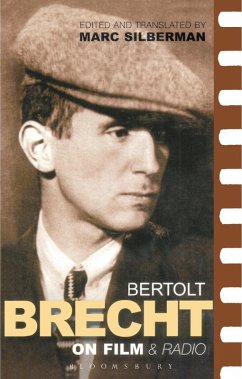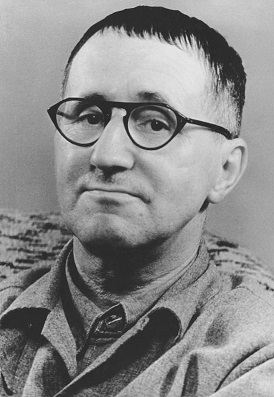From Weimar Germany to Hollywood to East Berlin, Brecht on Film and Radio gathers together a selection of Bertolt Brecht's own writings on the new film and broadcast media that revolutionised arts and communication in the twentieth century.
Bertolt Brecht's hugely influential views on drama, acting and stage production have long been widely recognised. Less familiar, but of profound importance, are his writings on film and radio. From Weimar Germany to Hollywood to East Berlin, Brecht on Film and Radio gathers together for the first time a selection of Brecht's own writings on the new film and broadcast media that fascinated him throughout his life and revolutionised arts and communication in the twentieth century. Marc Silberman's full editorial commentary sets Brecht's ideas in the context of his other work.
"I strongly wish that after their invention of the radio the bourgeoisie would make a further invention that enables us to fix for all time what the radio communicates. Later generations would then have the opportunity to marvel how a caste was able to tell the whole planet what it had to say and at the same time how it enabled the planet to see that it had nothing to say." (Bertolt Brecht)
Bertolt Brecht's hugely influential views on drama, acting and stage production have long been widely recognised. Less familiar, but of profound importance, are his writings on film and radio. From Weimar Germany to Hollywood to East Berlin, Brecht on Film and Radio gathers together for the first time a selection of Brecht's own writings on the new film and broadcast media that fascinated him throughout his life and revolutionised arts and communication in the twentieth century. Marc Silberman's full editorial commentary sets Brecht's ideas in the context of his other work.
"I strongly wish that after their invention of the radio the bourgeoisie would make a further invention that enables us to fix for all time what the radio communicates. Later generations would then have the opportunity to marvel how a caste was able to tell the whole planet what it had to say and at the same time how it enabled the planet to see that it had nothing to say." (Bertolt Brecht)


